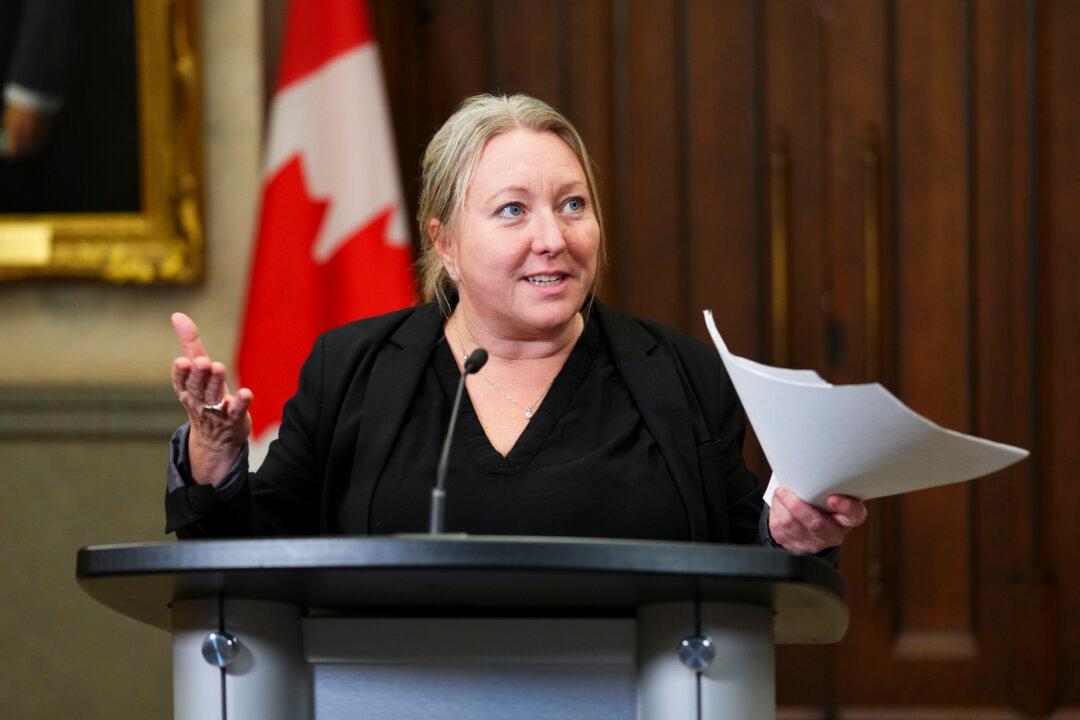Treasury Board President Mona Fortier said May 1 that the tentative deal Ottawa has reached with the Public Service Alliance of Canada (PSAC) for 120,000 of PSAC’s members will cost taxpayers $1.3 billion per year.
“This wasn’t easy. We negotiated, we compromised, and we found creative solutions,” Fortier said at a press conference on Parliament Hill in Ottawa.





